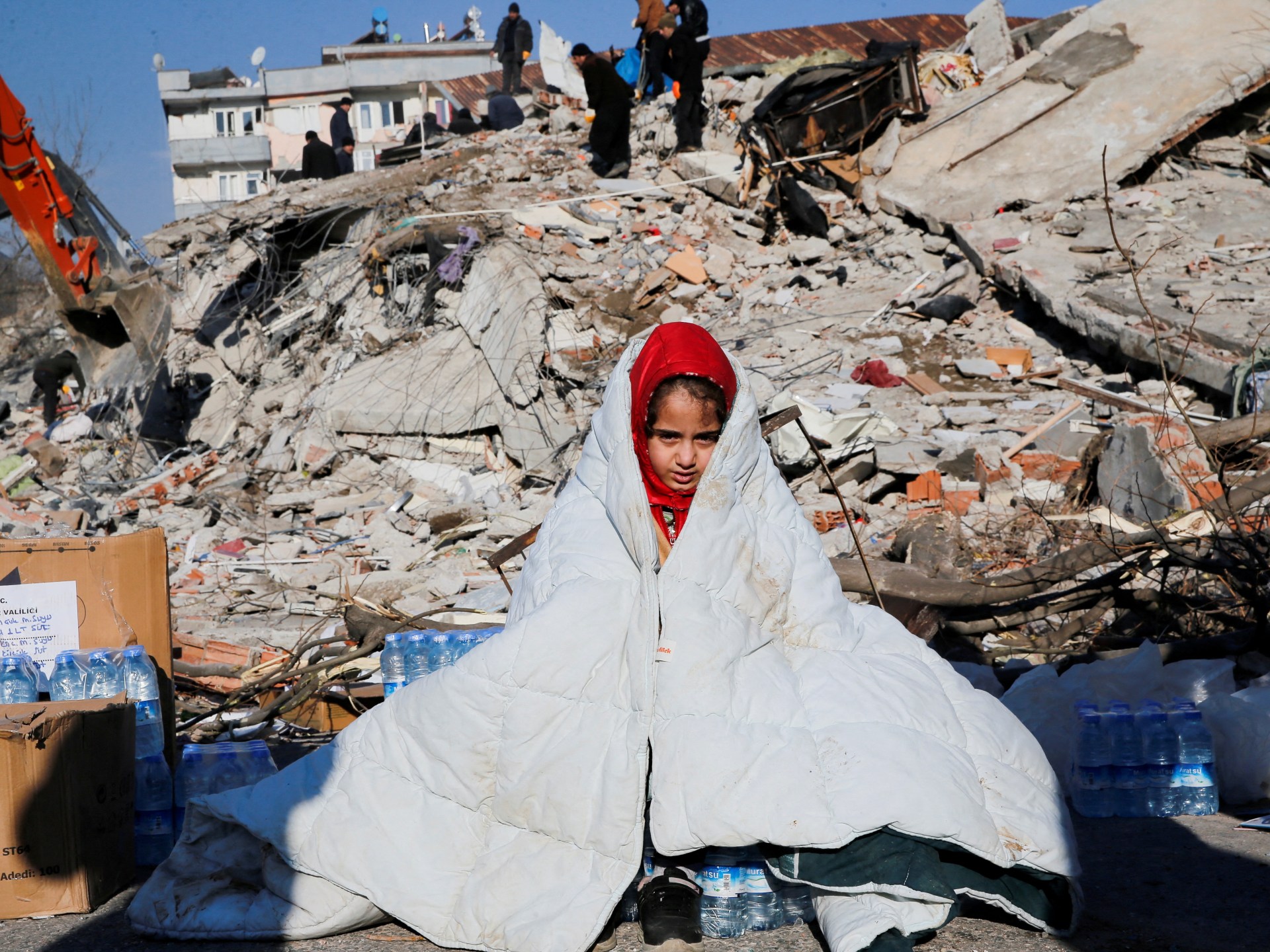Paris
- Once again, the French cartoon magazine "Charlie Hebdo" provoked the feelings of many around the world, after it published a cartoon mocking Turkey after the devastating earthquake that struck its south and northern Syria, leaving tens of thousands dead and injured, while tens of thousands await their fate under the rubble.
Despite the tragic event, the editors of this magazine published a cartoon of the devastation that followed the earthquake, accompanied by the question, "Did Turkey need tanks?"
The cartoon sparked widespread controversy, not only on the Arab and Islamic levels, but also in several European circles. The European "Euro News" website published an article in which it asked whether these cartoons were an insult or freedom of expression?
This controversy was preceded by drawings of this French magazine, in which it insulted the Messenger Muhammad, may God bless him and grant him peace, and the Islamic religion on many occasions.
Controversy often arises in European trade union circles about the boundaries between freedom of expression and insult or ridicule. Therefore, trade unions and trade unions have units specialized in researching work ethics, and they include activists in the media field. Much of the published material is subject to professional codes of conduct or codes of conduct that govern it. to experts on controversial issues.
"To go after the corrupt, not the innocent"
In his comment on the "Charlie Hebdo" drawing, Mike Holderness, editor of the Independent Journalists website in London, says - to Al Jazeera Net - "Freedom of expression necessarily means offending the guilty, prosecuting the corrupt, pressuring the liars and putting pressure on the influential, but the use of freedom of expression to abuse without justification for innocent people who have not done anything wrong is an order boyish".
As for the Secretary-General of the French National Journalists Syndicate, Antoine Chauzeville, he commented on the cartoon, saying, "For years we have been receiving continuous questions about the Charlie Hebdo caricatures ... and since the sixties and seventies they have been mocking everything repeatedly and in bad taste. We are not at all surprised by this caricature, they are used to that."
But Choseville does not find the magazine's cartoon on the Turkey earthquake to be a violation of the rules of the journalistic code of honor because it is a satirical magazine.
"They say they are practicing foolish satire... I remember a huge fire in France in which many people were killed, including children and teenagers, and yet it was affected by the satirical magazine's articles," he added.
Sometimes their drawings are aggressive, hurtful and tasteless."
He explained that he personally found the drawing of the earthquake in Turkey inappropriate, and he was surprised by the quality of his drawing.
He said that this caricature "was not shown in any other media or platform such as BBC France or national television."
"We do not expect harsh comments and sarcastic reports from journalists, but this comes from cartoonists such as Charlie Hebdo. I work for national television and if a colleague comes to comment satirically as it came in the magazine's drawing on TV, I will be shocked because we do not confuse harsh, aggressive comments with news," Choseville concluded. .
Charlie Hebdo had previously stirred the feelings of Muslims with cartoons insulting to the Prophet Muhammad, may God bless him and grant him peace (Reuters)
Challenging religious sensitivities
Charlie Hebdo journalists are seen as pillars of political satire in France. However, 8 years ago, the British Guardian newspaper published an analytical article in which it stated that this magazine had become extremely provocative and impolite, and was able to exploit freedom of expression through exaggerated satire.
However, many French activists and journalists still consider that it should not be taboo in their secular society, as the Charlie Hebdo cartoonists use the policy of challenging religious sensitivities and societal taboos as their editorial policy.
Despite this, France witnessed at least 7 cases until 2015 in which many artists, the most famous of which was the French comedian Dieudonné Mbala, were convicted of hate crimes, one of which was due to a satirical joke known for the issue of “apology on behalf of terrorism” that he published on his Facebook account shortly after an attack near the capital. Paris, and at the time he was sentenced to two months in prison, suspended because of the satirical joke, which the French court considered “hate speech.”
Mbala said after the sentencing that he sees himself as a martyr of freedom of expression, just like "Charlie Hebdo", and the government described him as a "peddler of hate" and banned his performances.
At a time when his case was seen as a positive step, it highlighted a much-needed debate in France about the reality of the limits of freedom of expression.

